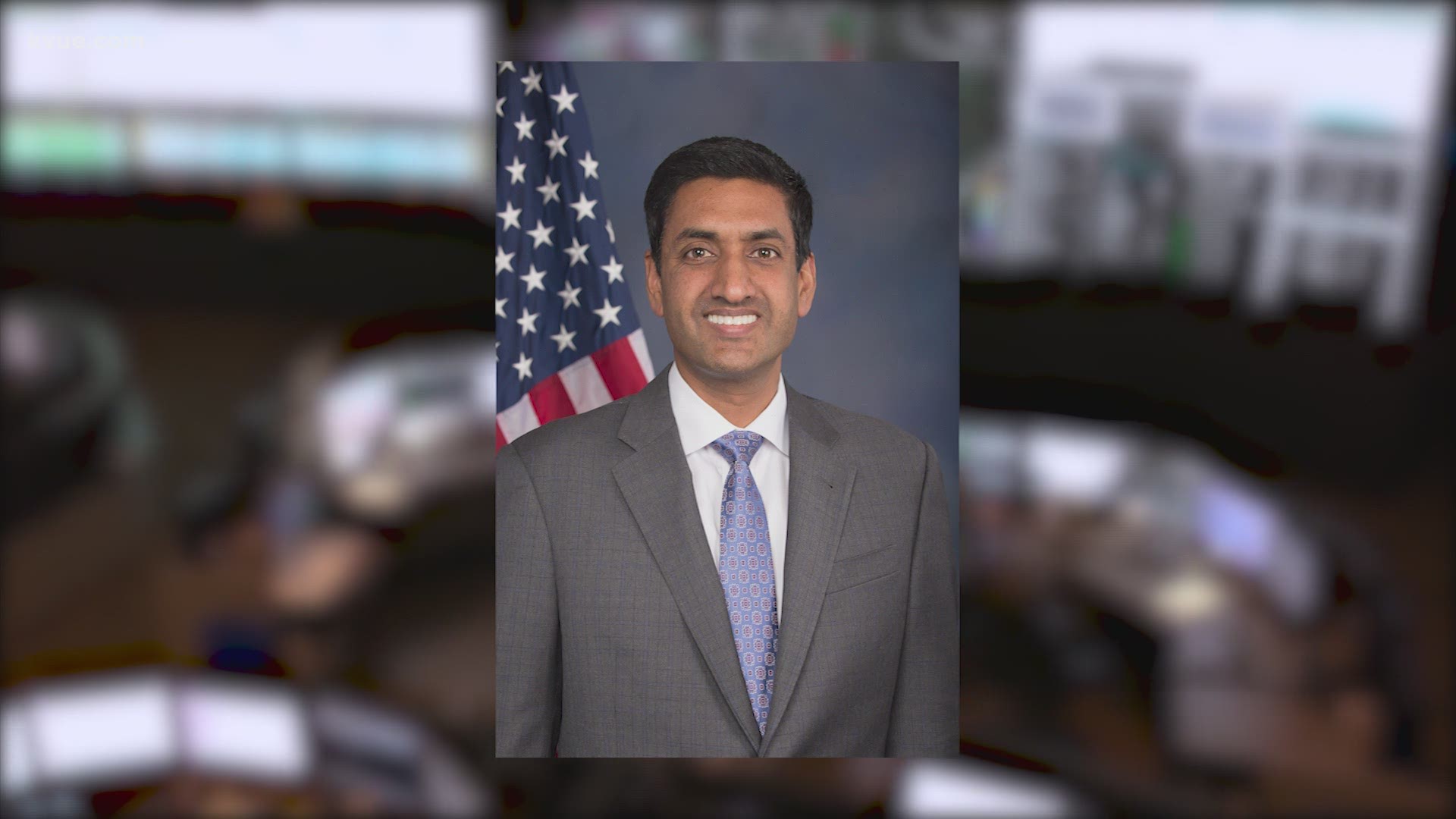A congressional subcommittee has now opened an inquiry into the actions of the Electric Reliability Council of Texas following last month’s winter storms that left millions without power across the state.
In a letter sent Wednesday, U.S. Rep. Ro Khanna, D-Calif., asks ERCOT CEO Bill Magness to provide “information and documents regarding the lack of preparation” by ERCOT.
Khanna, who chairs the subcommittee on environment, also asks for information regarding ERCOT’s “response to the winter storm and its preparedness for future storms.
“The failures of ERCOT and the State of Texas were costly,” the letter says. “Dozens of Texans have died and the number of confirmed deaths continues to grow. At least 4.5 million people experienced power outages.”
ERCOT released a statement in response to the letter Wednesday, saying, "We received the letter and will be providing responses."
The request comes on the heels of two days of lengthy committees in the Texas House and Senate last week. Already six members of the ERCOT board, including its chair and vice chair, have resigned in the fallout from the storms. Public Utility Chairwoman DeAnn Walker resigned on Monday following growing calls for her to step down.
The PUC’s members oversee ERCOT and are appointed by the governor.
The recent storms knocked about 47% of ERCOT’s generating capacity off line. At one point, ERCOT’s grid was within 4 minutes and 37 seconds from complete failure, executives said, which have resulted in Texans going for weeks, if not months, without power.
In some cases, power generators said they went off line because they could not get natural gas to power their plants. Other said that freezing temperatures caused outages at their plants.
ERCOT officials have said they were faced with a winter storm that turned out to be much worse than projected. Magness has testified that the amount of power that would have been required to meet demand would have been 76,000 megawatts, more than the highest summer load of nearly 75,000 megawatts.
Khanna’s letter cites some of the unique features of ERCOT’s grid which includes its “limited ability to important electricity from outside of the state because it operates its own interconnection independent from the rest of the United States.”
“Nearby areas out of ERCOT’s region, such as El Paso, experienced the same extreme temperatures but few disruptions,” Khanna wrote.
Khanna’s letter details previous major power outages in Texas.
In 1989, cold weather caused outages at 56 generating units and a capacity loss of 16,805 megawatts. The PUC “examined the cause of the generator outages and recommended that new power facilities be build to withstand extreme temperatures, and that producers needed to annually review generators to ensure that they could operate in the cold, maintain insulation and heat tracing systems in working order, and train personnel on cold weather procedures.”
Ten years ago in February, 210 generating units experienced some level of disruption during another winter storm that left more than three million Texans without power. Federal investigations into the outages concluded that the lessons learned form the 1989 outages either had not been “implanted or maintained,” Khanna wrote.
Lawmakers passed legislation in the months after 2011 outages that required power generators to turn in reports about the weatherization of their facilities. However, weatherization was not made mandatory.
Texas Gov. Greg Abbot appointed Arthur D’Andrea on Wednesday to replace Walker. He has served as a commissioner since November 2017. Previously, he was an assistant general counsel to Abbott and an assistant solicitor general for the Office of the Attorney General of Texas, according to a news release.

